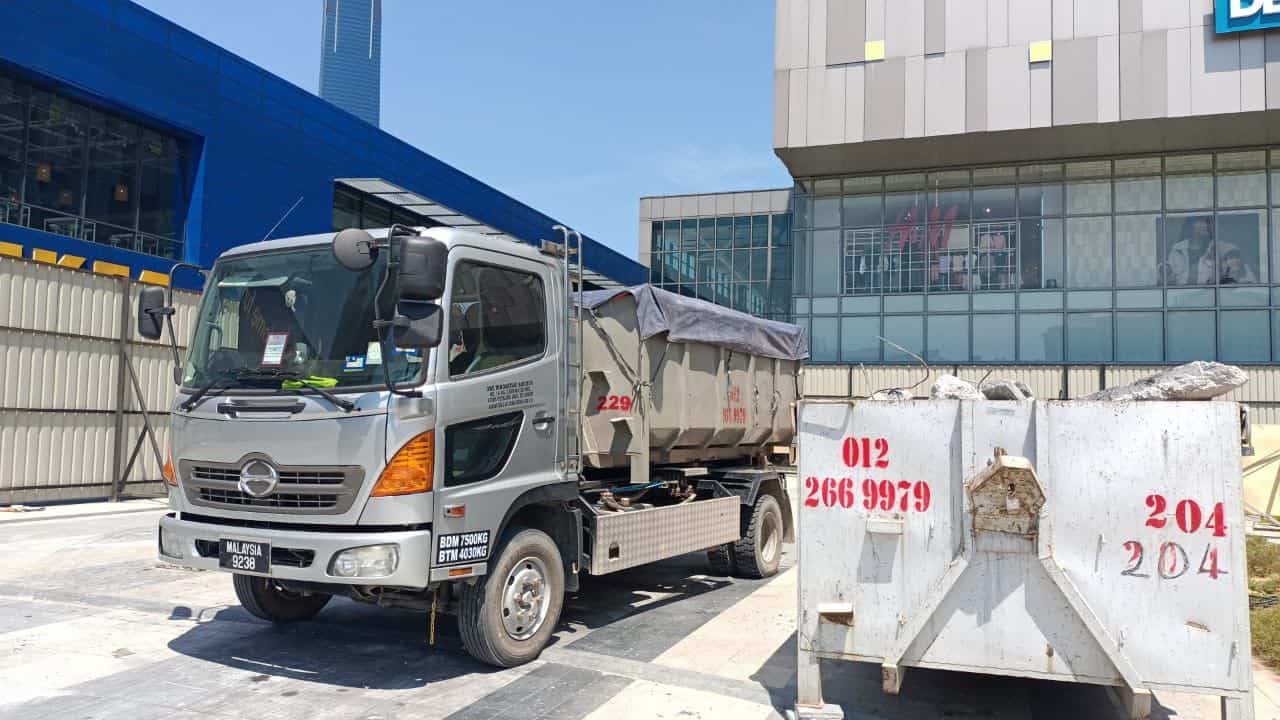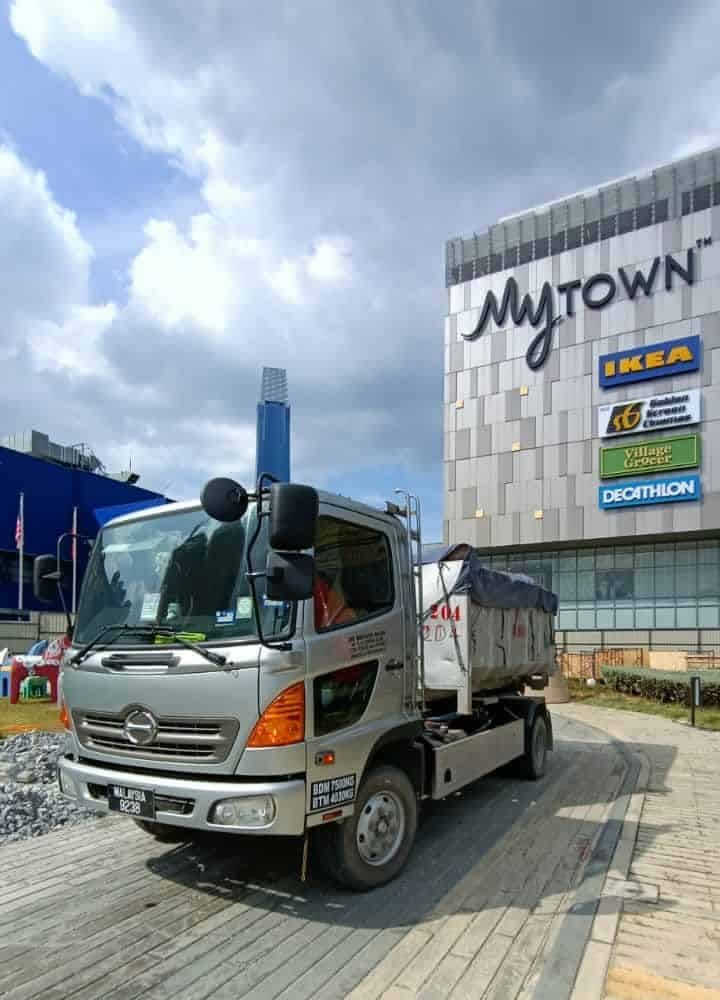RORO BIN RENTAL
Find The Right Size For Your Project

Small Roro Bin
Dimensions: 12′ (L) X 6′ (W) X 2.5′ (H)
Best Use: Heavy construction and demolition waste like concrete and soil.

Large Roro Bin
Dimensions: 12′ (L) X 6′ (W) X 4′ (H)
Best Use: Light-weight construction, industrial, commercial waste, furniture, household bulky waste, trees and etc.

Domestic Roro Bin
Dimensions: 12′ (L) X 6′ (W) X 4′ (H) with roof
Best Use: Domestic food waste (Organic waste).

Extra Giant Roro Bin
Dimensions: 16′ (L) X 8′ (W) X 6′ (H)
Best Use: Light-weight construction, industrial, commercial waste, furniture, household bulky waste, trees and etc.

Giant Roro Bin
Dimensions: 14′ (L) X 7′ (W) X 5.5′ (H)
Best Use: Light-weight construction, industrial, commercial waste, furniture, household bulky waste, trees and etc.
WHAT MAKES US DIFFERENT ?

Value Price

Express Service

Licensed Under Local Authorities

Quick Scheduling
TESTIMONIALS
OUR CLIENTS







PROJECT REFERENCE









Waste Bin Disposal Service
Introduction to Waste Bin Disposal Service
Managing waste efficiently is essential for a cleaner environment, healthier communities, and a more sustainable world. Waste bin disposal services play a key role in ensuring that waste from households, businesses, and construction sites is managed effectively. These services help keep our surroundings clean, minimize health risks, and reduce environmental harm. In this article, we’ll explore what waste bin disposal services are, why they’re important, the types of waste they handle, and how to choose the right service.
What is a Waste Bin Disposal Service?
Definition and Purpose of Waste Bin Disposal Services
A waste bin disposal service is a professional service that collects, transports, and disposes of waste. These services provide bins or containers that allow users to segregate and store waste until it’s collected. The main purpose of these services is to manage waste responsibly, ensuring that it is disposed of in an environmentally safe way.
Types of Waste Bin Disposal Services Available
Different waste bin disposal services cater to various types of waste, from regular household trash to industrial and hazardous waste. The most common types include:
- Residential waste disposal
- Commercial waste disposal
- Construction and demolition waste disposal
- Hazardous waste disposal
Each type is managed according to local laws and environmental regulations to ensure safe and legal disposal.
Why Waste Bin Disposal Services are Essential
Environmental Impact of Proper Waste Disposal
Improper waste disposal can lead to soil, air, and water pollution, contributing to climate change and harming ecosystems. By using a waste bin disposal service, waste is managed more sustainably, with recyclable materials diverted from landfills and hazardous waste handled safely.
Health and Safety Benefits
Unattended waste can attract pests, spread bacteria, and create unsanitary conditions. Waste bin disposal services reduce these health risks by promptly removing waste from premises, ensuring safer and cleaner communities.
Economic Benefits of Using a Waste Bin Disposal Service
Aside from environmental and health advantages, waste bin disposal services can also be cost-effective. They save individuals and businesses the time and resources it would take to handle waste independently, and in many cases, recycling programs can even offer rebates for certain materials.
Types of Waste Collected in Waste Bin Disposal Services
Household Waste
Food Waste and Organic Material
Household waste often includes organic material like food scraps, yard waste, and compostable items. Many waste disposal services separate these materials for composting, which turns organic waste into useful soil additives.
Paper, Plastic, and Other Recyclables
Paper, plastic, glass, and metal items from households are collected and often recycled. Waste disposal services play a role in diverting these recyclables from landfills, reducing environmental impact.
Industrial and Commercial Waste
Hazardous Waste Disposal
Industrial and commercial waste can contain hazardous materials that need special handling. Waste bin disposal services equipped to manage hazardous waste follow strict guidelines to prevent contamination.
Non-Hazardous Industrial Waste
Non-hazardous materials like scrap metal, cardboard, and plastics are also collected. These are usually sorted and recycled whenever possible.
Construction and Demolition Waste
Concrete, Brick, and Other Heavy Debris
Construction waste includes heavy debris like concrete, brick, and stone. Waste bin disposal services provide specialized bins for these materials to ensure safe and efficient collection.
Wood, Metal, and Other Reusable Materials
Wood, metal, and other materials from construction sites can often be reused or recycled, which helps conserve resources and reduce waste production.
The Process of Waste Bin Disposal Services
Initial Consultation and Assessment
Understanding Waste Needs and Requirements
Most waste bin disposal services start with an assessment to understand the type and volume of waste to be managed. This allows for a customized plan that meets the specific needs of the client.
Customized Disposal Plans
A tailored disposal plan ensures that waste is managed efficiently, with options for regular collection, recycling, and, when necessary, hazardous waste handling.
Collection and Transportation
How Waste Bins are Collected
Waste bin disposal services typically offer scheduled pickups. Depending on the waste type, they may also offer on-demand collection to prevent overflow or ensure timely disposal.
Safe Transportation of Waste Materials
After collection, waste is transported to facilities equipped for sorting, recycling, and disposal. Specialized vehicles ensure that hazardous materials are transported safely without risk of contamination.
Sorting and Recycling Process
Separation of Recyclable and Non-Recyclable Materials
At the sorting facility, waste is divided into recyclable and non-recyclable materials. Recycling reduces waste volume and provides materials for new products.
Benefits of Recycling in Waste Disposal Services
Recycling conserves natural resources, lowers greenhouse gas emissions, and minimizes the burden on landfills. Waste bin disposal services that prioritize recycling play a critical role in supporting sustainability.
Final Disposal or Treatment of Waste
Landfill Disposal Process
Non-recyclable waste is often sent to landfills, where it’s managed according to environmental standards. Modern landfills are designed to minimize pollution and impact on nearby communities.
Incineration and Other Waste Treatment Methods
Some waste is treated through incineration, which reduces volume and generates energy. Advanced treatment methods ensure that emissions are minimal and that the process is safe for the environment.
Choosing the Right Waste Bin Disposal Service
Factors to Consider
Service Availability and Reliability
When choosing a waste bin disposal service, reliability is crucial. Look for providers with a good track record for on-time collection and efficient waste handling.
Cost-Effectiveness
Service pricing varies, so it’s wise to compare rates. Some services offer discounts for recycling or bulk disposal, which can save money.
Waste bin disposal services are a vital part of waste management in today’s world. They provide a safe, reliable, and efficient way to handle waste, protect public health, and reduce environmental impact. Whether for households, businesses, or construction sites, these services make waste disposal easy and eco-friendly. By understanding how they work and choosing the right provider, you can contribute to a cleaner and more sustainable environment.


